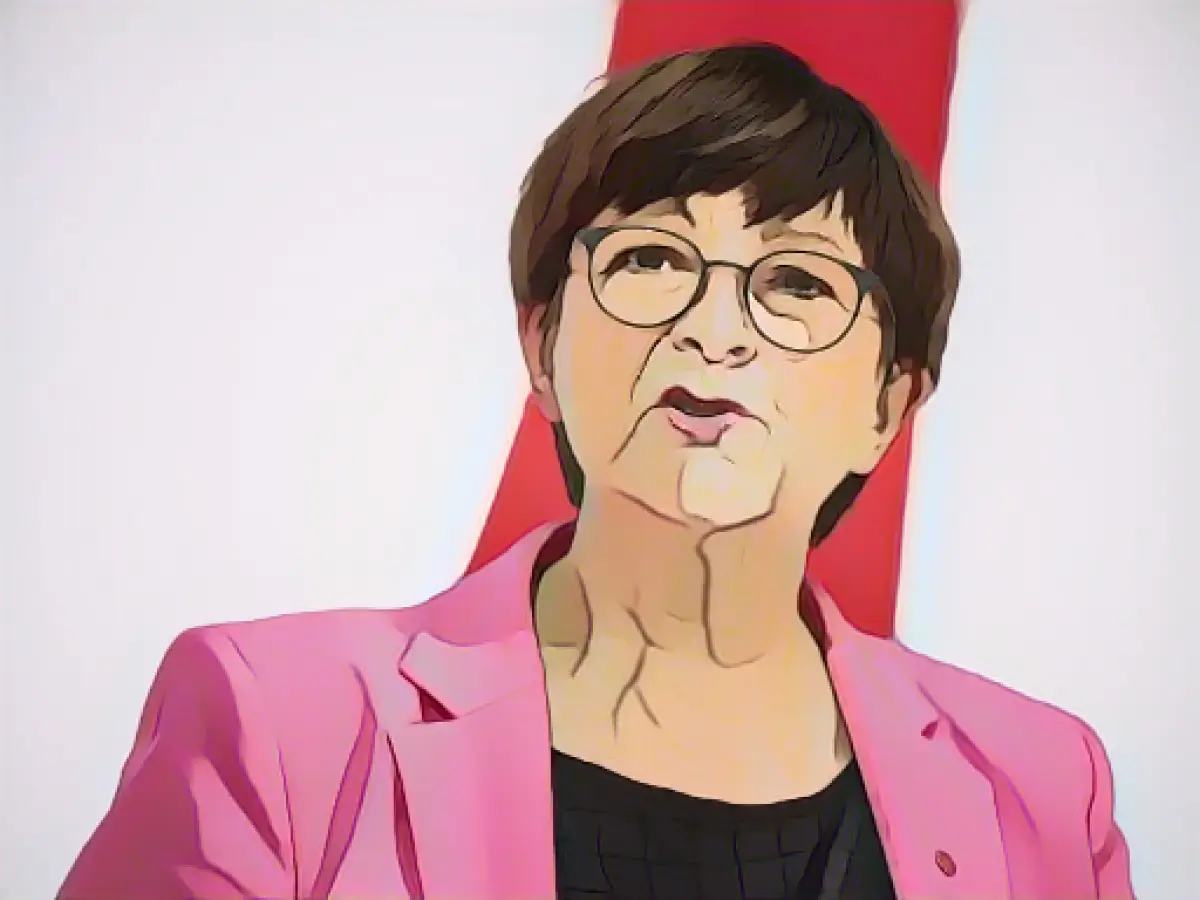Esken and DGB: Suspend debt brake for 2023 and 2024
Following the Federal Constitutional Court's budget ruling, SPD party leader Saskia Esken is arguing in favor of not applying the debt brake for this year and next year due to an emergency situation. "As we are in a continuing crisis situation due to external influences, I continue to advocate suspending the debt brake for 2023 and 2024," Esken told the Funke Mediengruppe newspapers.
A suspension would temporarily create more leeway for government spending, which was restricted in the past by the Karlsruhe ruling with regard to so-called shadow budgets. Esken emphasized that at the same time, the tasks of climate change, digitalization and demographic change would make a general reform of the debt brake "unavoidable".
Support from the DGB
Esken received support from the German Trade Union Confederation (DGB) and Monika Schnitzer, head of the German Council of Economic Experts. "In the short term, the federal government must suspend the debt brake again. There is a good reason for this, because the effects of the energy crisis are far from over," DGB board member Stefan Körzell told the Rheinische Post newspaper. The Karlsruhe ruling shows that the debt brake is more inflexible than expected - a fundamental reform is therefore necessary and investments must be excluded in future.
Schnitzer, Chairwoman of the German Council of Economic Experts, agreed with this view in the newspaper, but emphasized: "However, it seems unlikely that we will be able to agree on a reform of the debt brake in this legislative period." The co-governing FDP in particular is considered an advocate of the debt brake in its current form.
"It is clear that we will not allow any cuts in climate protection and its socially just design, nor in the welfare state," said Esken, who intends to run for another two years as leader of the Social Democrats together with Lars Klingbeil at the party conference in December. She also reiterated the SPD's call for higher taxes on top earners to generate additional revenue.
Merz blames Scholz and Lindner
On Wednesday, the Federal Constitutional Court declared the reallocation of 60 billion euros in loans in the 2021 budget null and void. They had been approved to deal with the coronavirus crisis, but were to be used for climate protection and modernizing the economy. It remains to be seen whether the ruling could also have consequences for the handling of debt-financed special funds at federal and state level.
CDU chairman Friedrich Merz holds Chancellor Olaf Scholz (SPD) and Finance Minister Christian Lindner (FDP) personally responsible for the failure of the 60 billion euro transformation fund.
"The responsible Federal Finance Minister Christian Lindner bears responsibility for the federal budget," Merz told the news portal t-online. "The overall political responsibility for the work of the federal government lies with the Federal Chancellor, who also invented the construction with the unconstitutional transfer of debt from the corona fund."
- Trade unions, like the German Trade Union Confederation (DGB), have voiced their support for suspending the debt brake due to the ongoing crisis situation, arguing that it's necessary to provide more leeway for government spending.
- During a press conference, Saskia Esken, the leader of SPD, mentioned that she intends to run for another two years as lead, stating that the party will not allow any cuts in climate protection or the welfare state, and will advocate for higher taxes on top earners to generate additional revenue.
- Friedrich Merz, the chairman of the CDU, critiqued Chancellor Olaf Scholz and Finance Minister Christian Lindner, holding them responsible for the failure of the 60 billion euro transformation fund, as declared null and void by the Federal Constitutional Court.
- Parties such as the SPD and FDP have been involved in discussions regarding the debt brake and its suspension, with the FDP being considered an advocate of the debt brake in its current form.
Source: www.dpa.com








